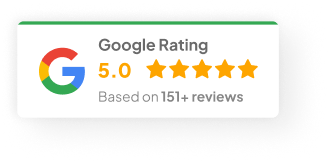05 Feb 25
Which Of The Following Is Not An Advantage Of Using Open-Source Software?
You hear it everywhere.
“Open-source is the future.”
“Everybody’s moving to open-source.”
And honestly, yeah—it’s gotten insanely popular over the last decade. For good reason too. A lot of companies (and individuals) have jumped on the open-source bandwagon because it saves money, offers flexibility, and puts them in control.
But hang on a second.
Is it all good news?
Not exactly. Like anything in tech, open-source software comes with its pros and cons. And depending on what you need, some of those cons can be deal breakers.
Let’s unpack it properly.
First: What Even Is Open-Source Software?
Open-source software is basically software where anyone can access, modify, and share the source code.
No locked vault. No “you-can’t-touch-this” policies like you get with proprietary tools.
Think of systems like:
-
Linux (tons of servers run on it)
-
Mozilla Firefox (still hanging in there)
-
WordPress (almost half the internet runs on it)
It’s built by everyone—from big businesses to freelance developers hacking away at 2am. That shared effort is part of what makes it great.
Why Do So Many People Love It? (The Advantages)
There are plenty of reasons why open-source keeps growing:
1) It’s Cheap. Often Free.
No license fees. No subscriptions draining your budget every year.
When I was consulting for a startup in 2019, we saved them around $40K annually just by switching their internal systems to open-source options. That cash went straight into marketing instead.
2) Customisation Like You’ve Never Seen
You’re not boxed in. If you want to add features or tweak how it works, you (or your dev team) can dive into the code.
We once helped a client completely rewrite sections of an open-source CRM to fit their weird sales cycle. Try doing that with Salesforce.
3) Better Transparency
There’s no mystery. You can literally see what the software’s doing behind the scenes. No hidden trackers. No surprise updates that break everything.
4) Security Through Visibility
People argue about this one, but I’ll say this: because so many eyes are on the code, vulnerabilities often get caught faster. Look at how the Linux community patches bugs—sometimes within hours.
5) The Community’s Got Your Back
Most open-source projects have passionate communities:
-
Forums packed with tips
-
Developers sharing custom plugins
-
Endless YouTube tutorials
You’re not exactly alone when you hit a wall.
6) Plays Nicely With Others
Open-source tools often follow open standards. That means they usually integrate well with other software—critical when you’re stacking multiple systems together.
But Let’s Be Real: The Downsides Are Real Too
Now for the stuff people don’t always tell you upfront:
1) It Can Be Harder to Learn
Many open-source tools don’t have polished onboarding or slick UIs like commercial software.
When we implemented an open-source accounting system for a client last year, it took their team a good month to feel comfortable. Training videos helped, but there’s a curve.
2) No 24/7 Support Hotline
If something breaks, there’s usually no vendor you can ring up at 2am. You’re relying on:
-
Community forums
-
Reddit threads
-
Hoping some kind soul answers your StackOverflow post
And sometimes, let’s be honest, that’s not good enough for mission-critical systems.
3) Compatibility Can Be Sketchy
Some open-source tools don’t play nice with proprietary platforms. If your business runs on heavy enterprise software, integration might be a headache—or impossible.
4) Projects Can Stall or Die
Not every open-source project thrives forever.
I’ve seen great tools lose momentum when their lead devs moved on or funding dried up. Suddenly, you’re stuck on unsupported software that hasn’t seen an update in 3 years.
The Big Question: What’s Not an Advantage?
Alright, so here’s where open-source drops the ball: dedicated, guaranteed support when things go sideways.
You won’t get:
-
Dedicated account managers
-
Guaranteed SLAs
-
24/7 live chat
Proprietary software vendors (think Microsoft, Oracle, Salesforce) exist largely to provide that peace of mind. You pay for the privilege, but sometimes that support is worth its weight in gold—especially for larger businesses where downtime equals lost revenue.
Should You Go Open-Source?
Look—it depends.
-
If you’ve got a capable in-house team? Open-source can be a dream.
-
If you need hand-holding, white-glove support, or guaranteed uptime? Proprietary might be safer.
I’ve seen companies thrive on open-source and others fall flat because they underestimated the technical load. Always weigh up your resources before you dive in.
So tell me — what’s your team leaning towards right now? Open-source or the safer (more expensive) vendor route?


